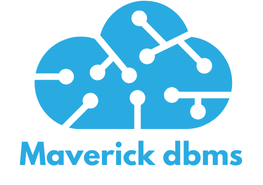The introduction of artificial intelligence (AI) in the academic world has opened a new horizon for possibilities and innovation. How can UK universities use AI to streamline research data management? This article will delve into the various ways UK universities can harness AI technologies to enhance data management, analysis, and the overall research process. We will explore how AI can be used in clinical trials research, overcome bias in research, and support the learning and development of students.
The Power of AI in Research Data Management
The first step towards understanding the use of AI in research data management is to understand the enormous potential of this technology. AI and machine learning can help scholars and students analyse vast amounts of data in a fraction of the time it would take manually. This not only speeds up research but also reduces the risk of human error and potential bias.
Have you seen this : How Can Chatbots Enhance Customer Service in the UK Telecom Industry?
AI systems can be used to analyse complex datasets from diverse sources, such as clinical trials or PMC databases, identifying patterns and trends that might be overlooked by human researchers. These systems can also learn over time, improving their analysis capabilities with each new dataset they encounter.
Using AI in Clinical Trials Research
Clinical trials generate massive amounts of data. Traditionally, researchers would comb through this data manually, a painstaking and time-consuming process. With the help of AI, data from clinical trials can be processed and analysed more efficiently and accurately.
Also read : How Can AI Improve Predictive Maintenance Strategies in UK’s Aerospace Industry?
AI can help in the entire lifecycle of a clinical trial, starting from patient recruitment, data collection, analysis, and reporting. For instance, machine learning algorithms can be used for predictive modelling, identifying potential trial participants based on a variety of factors such as age, medical history, and genetic makeup.
In the analysis stage, AI can help researchers identify trends and correlations in the data, which can lead to new insights and discoveries. These capabilities of AI can significantly streamline the research process, saving time and resources, and potentially leading to breakthroughs in medical research.
Overcoming Bias with AI Technology
Despite the best efforts of researchers, bias can still creep into research in subtle ways. One of the main advantages of AI is its ability to process data objectively, helping to eliminate the risk of human bias.
AI-based tools can analyse datasets without preconceived notions or expectations. They can process data impartially, identifying patterns and trends based solely on the data itself. This can result in more accurate and reliable research findings.
However, it is crucial to remember that AI is only as unbiased as the data it’s fed. If the data used to train the AI system is biased, the AI’s analysis will also be skewed. Therefore, researchers must put in place robust data collection and management practices to ensure the data used to train AI is as unbiased and representative as possible.
AI and Student Learning Development
AI is not only beneficial to researchers but also to students. It can be used in various ways to support student learning and development. AI-based educational tools and platforms can provide students with personalised learning experiences, adapting to their learning styles and speed.
These tools can also provide real-time feedback, helping students identify areas where they need improvement. Moreover, AI can help students with research work, be it through data analysis or access to vast libraries of scholarly articles via platforms like Google Scholar.
AI can also play a crucial role in developing critical thinking and analytical skills in students. By working with AI systems, students can learn to approach problems from different angles and come up with innovative solutions.
Future of AI-Based Data Management in Universities
The rise of AI in academic research is an exciting development, bringing with it the potential to transform research methods and outcomes. As AI technology advances, we will see even more sophisticated data analysis tools, potentially leading to new breakthroughs and discoveries.
UK universities, by harnessing the power of AI, can streamline their research data management processes and improve the quality of their research. However, it’s important to remember that the use of AI also comes with challenges, such as ensuring data privacy and overcoming the risk of AI bias. Universities must therefore adopt a mindful approach to AI implementation, ensuring that it is used responsibly and ethically.
In summary, AI holds great potential for UK universities in research data management. Its ability to analyse vast amounts of data quickly and accurately can accelerate research and lead to more accurate findings. Moreover, AI can help overcome bias in research and support student learning and development. The future of research data management looks bright, with AI leading the way.
Advanced Data Collection with AI in Higher Education
The application of Artificial Intelligence in the field of higher education and research is not limited to data analysis. Another significant area where AI can be of tremendous help is data collection. With the capacity to collect and sift through large amounts of data quickly, AI can help researchers acquire the information they need more efficiently.
Traditionally, data collection has been a manual process, often requiring substantial time and resources. However, with AI, this process can be significantly streamlined. Machine learning algorithms can scour various data sources such as Google Scholar, PMC free, PubMed Google, and other digital science platforms to find articles, clinical trials, and other relevant research data.
Moreover, AI can also help in gathering and organizing clinical trial data. For instance, imagine a researcher studying a particular medical condition. The AI system can be programmed to find articles, locate clinical research, and even separate window data related to this condition from PubMed Google or other databases, saving the researcher valuable time.
In the context of Uttar Pradesh or other regions where resources might be limited, AI can be especially useful. By enabling remote data collection and analysis, AI can facilitate research in areas that were previously inaccessible or resource-intensive.
However, while AI offers numerous advantages, it is also essential to ensure data privacy and security. Universities need to ensure that AI systems comply with data protection regulations and are programmed to handle sensitive information appropriately.
Deep Learning and AI: An Unexplored Frontier
While we have discussed some applications of AI and machine learning in research data management, it is essential to also consider the potential of deep learning. As an advanced subset of AI, deep learning involves artificial neural networks with several layers – allowing it to learn and process information in sophisticated ways.
Deep learning can be particularly useful in dealing with complex and multidimensional data. For example, it can help researchers analyse and interpret complex patterns in data, which may be difficult to discern through traditional methods. It could potentially revolutionize the way certain scientific problems are approached, including complex models like climate change, genetic disorders, or economic systems.
AI and deep learning can also play a transformative role in student education. They can facilitate adaptive learning, wherein the system adjusts the difficulty level of the curriculum based on the student’s performance. It could also be used to develop predictive models to identify students who might be at risk of falling behind, allowing for timely intervention.
As we look ahead to the future, it is clear that AI has a significant role to play in research data management in universities across the UK. By enhancing the efficiency of data collection, analysis, and interpretation, AI can accelerate the pace of research and potentially lead to more significant discoveries. Moreover, AI’s impact extends beyond research and into the realm of education, offering the promise of personalized and adaptive learning.
However, this new frontier also brings with it new challenges. Data privacy, ethical use of AI, and the risk of AI bias are all issues that need to be addressed. As we move forward, it will be crucial for universities to adopt a balanced approach, harnessing the power of AI while also managing its risks.
The transformation is already underway. And as we continue to explore the vast potential of AI, it’s not just about how we can use this technology, but how we do so responsibly and ethically. The journey is just beginning, and the future of research data management in higher education looks promising with AI leading the way.











